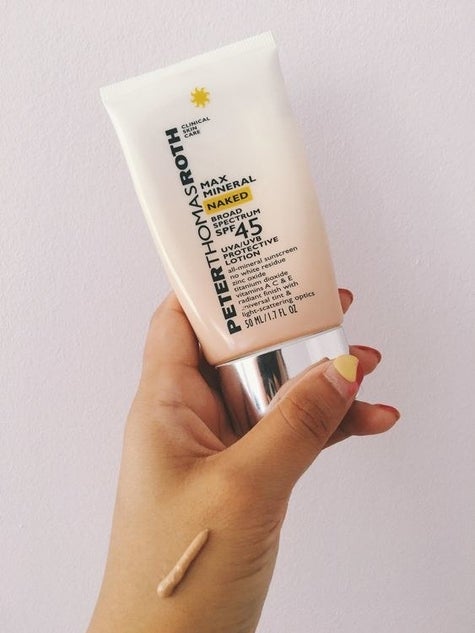







Welcome Back
Sign in to be closer to your community!
Follow other divas, like and comment
on their posts, message them, and see
who loved your posts!
Invalid username or password
You have not verified your account by clicking on the link we sent you via email. Please check your email folders (including your Spam folder) and click on the verify link sent.
Email is required
Password is required








Join FashionPotluck.com
Create your own profile in order to create content, follow other divas and like their posts, use our own messenger, and be a part of a growing international women community!
WELCOME TO OUR COMMUNITY
Fashion Potluck -
the first social media
platform for women.
You are free to read/watch & create content,
express your true self, and interact with others.
Join for free
Already a member? Log in here.
Purchase Alert
Dear Queen, you can only buy from one seller at the time. Please finish this purchase first in order to buy from another FP member
Comments
Please select one platform to continue
Please select one platform to continue
Please select one platform to continue
Please select one platform to continue
Please select one platform to continue
Please select one platform to continue
Please select one platform to continue
Please select one platform to continue
EDITOR APPROVED
You are wondering what is this 'Editor Approved'?
Well, this is pretty awesome! In order for the post to qualify and receive this accolade, it has to have a minimum of 700 words and two images (at least one original).
Receiving this accolade means two things: 1) Your content is amazing! Good job! 2) Your content qualifies for our monetization program. Every week two of the most read posts receive monetary rewards.
Have the badge & want to monetize your content?

REVIEWS
SPF for Acne-Prone Skin | Clinique & Peter Thomas Roth | Beauty Shopping Guide for SPF


Product details: Clinique Superdefense SPF 40 Gel & Peter Thomas Roth Max Mineral Naked Broad Spectrum SPF 45 Lotion


Summer is finally here! The sun is out (unless you live in the Netherlands!), everyone is more thrilled, you’ve purchased your new swimsuit and can finally spend a great time outside. Whether you’re fortunate to live close to the beach, or you prefer spending your summer chilling in the local park, there is one thing you always have to keep in mind - use SPF!
We see so many promotional advertisements that talk about the fundamental importance of using SPF. After all, it has quite a lot of benefits: it prevents sunburn, adequately protects your skin from premature wrinkles, but it is also used to defend against severe health issues such as skin cancer.
On the other side, I rarely hear anyone discussing the potential downsides of using SPF. I am presently not referring to the sticky texture that doesn’t look the best on your skin and itches your eyes. After all, there are a lot of alternative formulas that smell amazing, provide a great texture, and feel soft on your skin.
However, the key issue I genuinely want to emphasize is that sunscreens can often cause breakouts! I usually have good skin and I never have much trouble with acne. However, as soon as the sun is out, my skin instantly turns to an absolute disaster. My back and shoulders become full of acne, which by all odds makes me feel insecure.

Last year, I went to the dermatologist to see if my pale skin is allergic to strong sun rays. Although the expert confirmed that I am more sensitive to the sunlight, she also shared a wise thought - ‘Perhaps you’re using the wrong sunscreen’. Up until this moment, I never in fact thought that a wrong SPF could cause acne breakouts, but my extensive research showed otherwise.
A lot of women with acne naturally wonder whether they should apply SPF in case they have a breakout. They fear that placing a woolly coat of sunscreen will make things even worse and that the sun might dry up their acne. Although you might feel uncomfortable applying SPF on a breakout, it is still necessary. Adequately protecting your complexion from harmful UV rays is fundamentally important, especially if you have acne-prone skin which is more sensitive to the sunlight.
Why does acne-prone skin get even worse under sun exposure?
The dangerous infrared heat from the sun rays irritates your skin, causing your acne to flare even more. According to dermatologists, that typically happens for two possible reasons:
1) SPF can contain so-called comedogenic ingredients that can clog your pores. Some prime examples of such ingredients are lanolin, Sodium Laureth Sulfate, isopropyl myristate and derivatives, and even wheat germs, coconut, and palm oil.
2) You can demonstrate a natural sensitivity towards the UV-blocking agents. This, in turn, can cause a chemical reaction on your complexion, leading to more acne and irritating your already sensitive complexion.
Besides, people who have acne-prone skin repeatedly consume specific products that try to reduce acne, such as retinol. Although the latter helps in fighting spots, it also makes your skin more sensitive to the sun, increasing the chance of post-inflammatory hyperpigmentation. What does that suggest? Scars and hyperpigmentations are made of extra melanin, and the sun encourages its production. The sun exposure darkens pigmentation making it last longer than it usually would. That means that if you have acne scars and don’t treat them with the right SPF, they will only get worse.
When picking SPF, few practical tips will help you pick the most adequate protection:
Keep in mind choosing a mineral sunscreen that doesn’t contain comedogenic ingredients. Non-mineral sunscreens work in a way that your skin instantly absorbs chemicals that protect you from the sun. This, in turn, can cause allergic reactions and irritate your complexion. Mineral SPF, on the other side, does not get absorbed by your skin, but rather stays on top of it. In this way, it defends you from UV rays without clogging your pores.
In case you have sensitive skin, search for SPFs that contain titanium dioxide and zinc oxide as these won’t cause any allergies. When it comes to texture, look for SPFs that provide a liquid consistency, rather than thick creams. When looking at the label, avoid any comedogenic ingredients, heavy oils or fragrances, as these can irritate acne-prone skin. Here are my recommendations:
Clinique Superdefense SPF 40 Gel - €31.50 for 30ml
In case you love applying SPFs that not merely protect you from the sun but also help combat fatigue and ageing, then you must check out this Superdefense SPF 40 Gel by Clinique. Making your texture smoother and your fine lines more even, this is an ideal gel choice to use daily.
Being oil-free, it is ideal for acne-prone skin, as it won’t cause any considerable irritation some chemical SPFs do. This moisturizer also helps keep your complexion hydrated for 12 hours and produces a fresh, youthful glow.
The SPF contains active ingredients as Abovenzone and Octisalate that protect your skin from UVA and UVB rays. I recommend using this product throughout the year, as its ingredients also help preserve the skin against pollution and other damaging radicals that cause ageing. Containing Vitamin E, this gel is an essential anti-oxidant and is also sweat and humidity-resistant! Perfect for hot summer days:)
Peter Thomas Roth Max Mineral Naked Broad Spectrum SPF 45 Lotion - €33 for 50 ml
In case you’re looking for an all-mineral SPF, then you won’t make a mistake by ordering the Peter Thomas Roth Max Mineral Naked Broad Spectrum SPF 45 Lotion. Although it provides a lightweight texture, containing Zinc Oxide and Titanium Dioxide, this SPF provides you with the right protection you need. When I apply it, I undoubtedly feel my skin is being hydrated, but the texture is not greasy or heavy on my complexion at all. As the formula has a sheer tint, there are no white casts left. Your healthy glow does not look shiny or oily but has more of a matte finish. The formula in addition contains Vitamin A, C and E, which are antioxidants that help nourish your skin and keep it moisturized throughout the day. When applying this SPF, I love how easily it gets spread over my face, especially as its diamond power feature gives it a soft-focus finish look.
How to apply SPF?
I always make certain my skin is clean before applying any cosmetic product, and especially SPF. In case you have acne, I recommend cleansing your face with a salicylic-based cleanser. That will help exfoliate your complexion, clean the pores, and make them ready for SPF. I also make sure to apply a moisturizer that will help keep bacteria out of my pores and prevent skin irritation.
Ultimately, place a thick layer of SPF on your face/body, and using circular motions, ease your skin to absorb it. Here is what dermatologists have to say:
How often should you use SPF?
You should correctly apply SPF usually two hours before naturally exposing your skin to the sunlight, and once you do the latter. After that, repeat the procedure every two hours. In case you’re at the beach and going for a swim, make sure to apply SPF as soon as you get out of the water. Keep in mind that although we enjoy natural products when talking about SPFs, it is best to purchase SPF with the highest factor. Natural-based SPFs frequently do not provide enough adequate protection against damaging sun rays.
I want to emphasize that although SPFs can be relatively expensive, it is an investment you absolutely must make! The state of your skin should always remain a priority as your health is priceless! What is your favorite SPF this summer? Do you have any recommendations?
Make sure to leave them in the comments below!
Una xx
- Rate article:
Comments
Related Posts
- How do I install Top Follow IPA on my iPhone or iPad? by smith leo 0
- My Current Reads: A Dive into Health, Beauty, Creativity, and Artistry for Modern Women by Julia Mitereva 0
- 8 Drugstore Products that are both Affordable and have Good Quality by Iuliana Roman-Popovici 0
More Posts
- The Evolution of Women's Fashion: Key Historical Eras and Styles by Chloe Williamson 0
- Why Cowboy Ties Are Making a Bold Fashion Comeback This Year by Rocky Mountain Western 0
- Havva Fashion – Trendy Women’s Wear for Every Occasion by 0
Vote content out
Reason for voting this content out?
Reason for voting this content out?


 Login with Google
Login with Google Login with Twitter
Login with Twitter





 by
by 

Add Comments